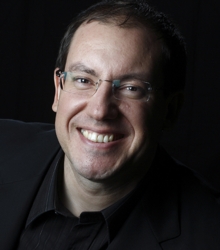What happens when a super angel gets its wings? You become a boutique fund.
Or at least that’s how Aydin Senkut’s Felicis Ventures is putting it with a fresh fund worth about $70 million. That’s up from the firm’s previous $41 million fund and a big change from Senkut’s early dabbling in angel investing from years ago. Senkut is an early Googler who has turned a hobby into a fund that now supports a team of five and more than 80 companies.
The Palo Alto firm is mirroring a trend we’re seeing across the entire industry as early-stage funds get bigger. Dave McClure’s 500 Startups recently raised $50 million while True Ventures closed $205 million yesterday and Seattle’s Madrona Ventures closed its biggest fund yet this week with $300 million. First Round, which is laser-focused on supporting companies through their first 18 months of life, also closed a $135 million fund last month. Then there are the big venture firms with early-stage funds like Greylock’s Discovery Fund and a new seed fund led by Kleiner Perkins’ Aileen Lee.
What this means is that there is plenty of early-stage capital chasing companies despite headwinds from Facebook’s lackluster IPO. Senkut tells us that he went for a bigger fund so that he could support more services like recruiting, marketing and PR and design for Felicis’ portfolio companies. The firm has added additional partners like Renata Quintini and Sundeep Peechu, who bring legal and technical expertise.
There is also the desire to keep some dry powder in case the fund wants to do follow-on investments.
“We don’t want to be limited to seed investments,” Senkut tells us. “We want to support companies through multiple rounds. We’re graduating to what we call a boutique fund.”
This is key because Series A rounds remain more elusive compared to the easier money for seed and angel funding. The ease with which many founders have been able to attract seed funding had raised concerns that there might be companies that are orphaned when they try to raise more capital in a “seed crash” or a “Series A crunch.”
That hasn’t been the case so far. The fact that so many early-stage investment firms are getting bigger means that more super angels are able to continue supporting their companies later on.
Despite the amount of early-stage capital chasing startups, Senkut says Felicis has a unique angle in focusing on health, education, mobile, e-commerce and enterprise. He pointed to some of the fund’s more prominent investments like Finland’s Rovio, which Felicis went in on when it was worth about $200 million, and Practice Fusion, which is focused on building free, web-based electronic medical records. It also invested in Inkling, a company led by Apple alums that is revolutionizing the textbook industry with tablets and the iPad in mind.
He says Felicis is taking a closer look at areas like bioinformatics and connected devices. Dropcam, which is a Wi-Fi-enabled video monitoring camera that saves HD video online, is an example of this strategy. Felicis supported the company in its seed and Series A rounds.
Felicis says that the top one-fourth of its portfolio companies now generate $800 million in annualized revenue and that the total enterprise value from all of the firm’s exits is about $1.2 billion. There have been notable exits like Mint’s $170 million sale to Intuit, Chomp’s roughly $50 million sale to Apple and Karma’s roughly $70 million sale to Facebook.
He added that the fund was more than 40 percent oversubscribed and that all of the existing institutional investors came back this time. He said they also added a “leading endowment,” a “leading foundation” and Tencent as additional limited partners.
Senkut’s relationship with Chinese Internet giant Tencent goes way back to his Google days, when he arranged the first strategic deal between the Shenzhen-based company and Google in 2004. It underscores Felicis’ more international approach to thinking with investments in Finland, Brazil and Israel.

